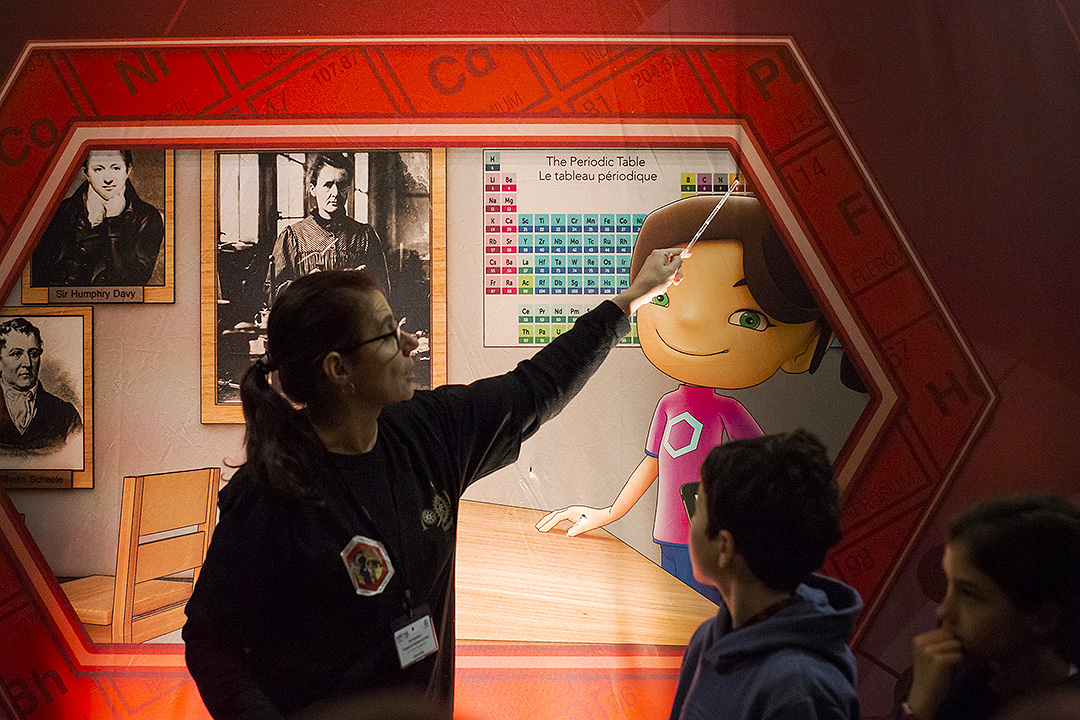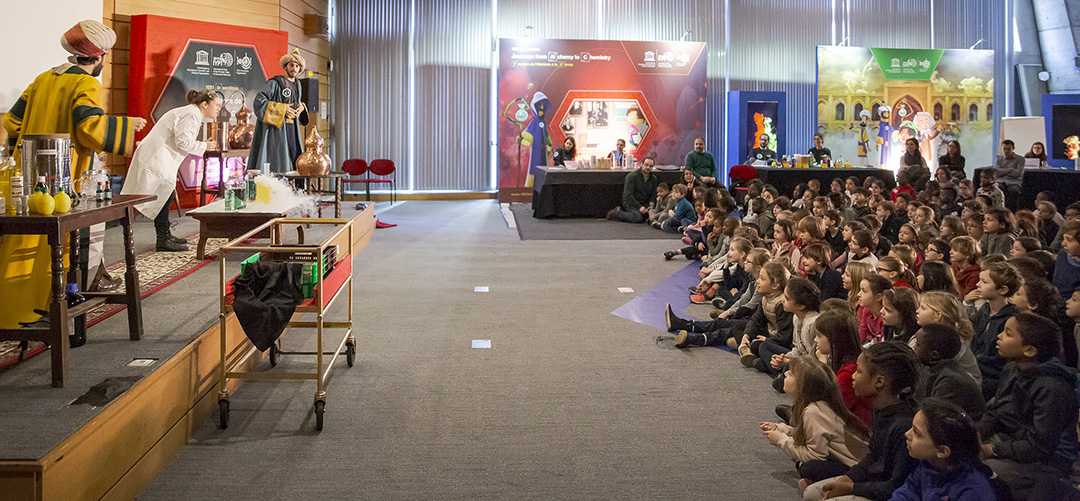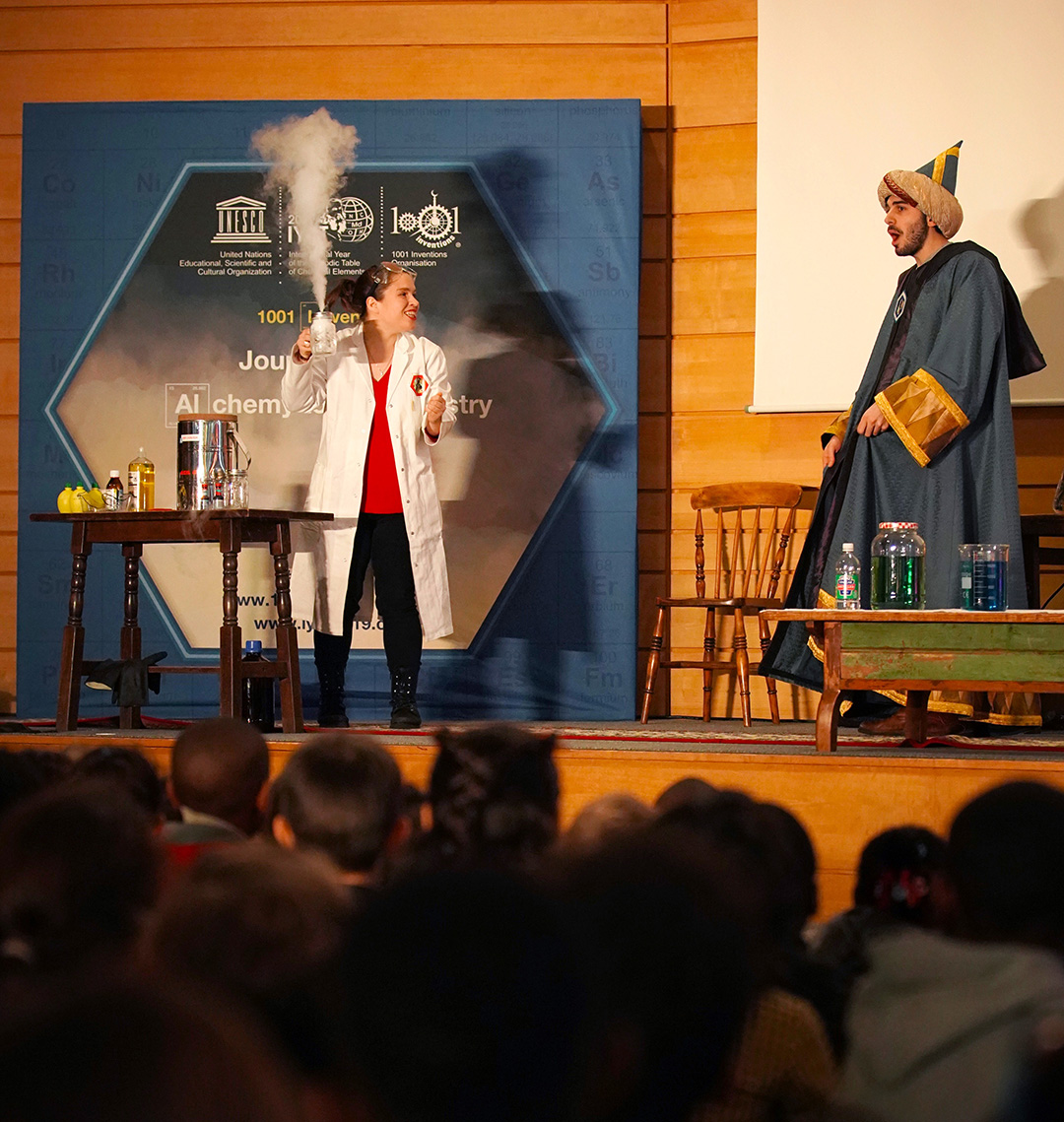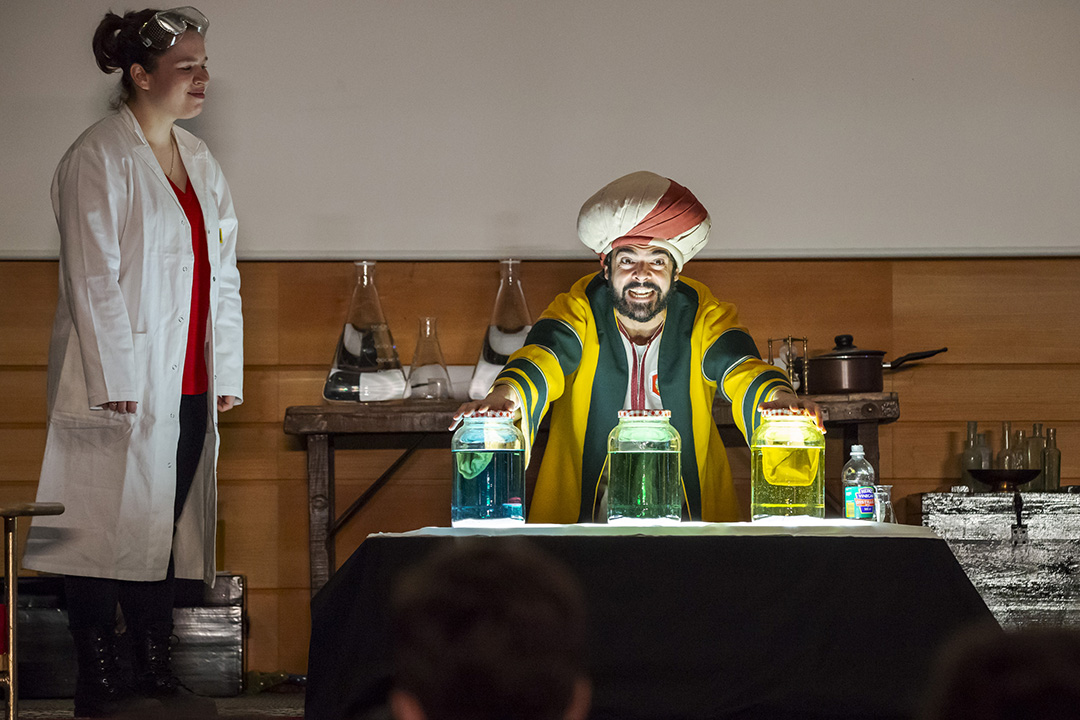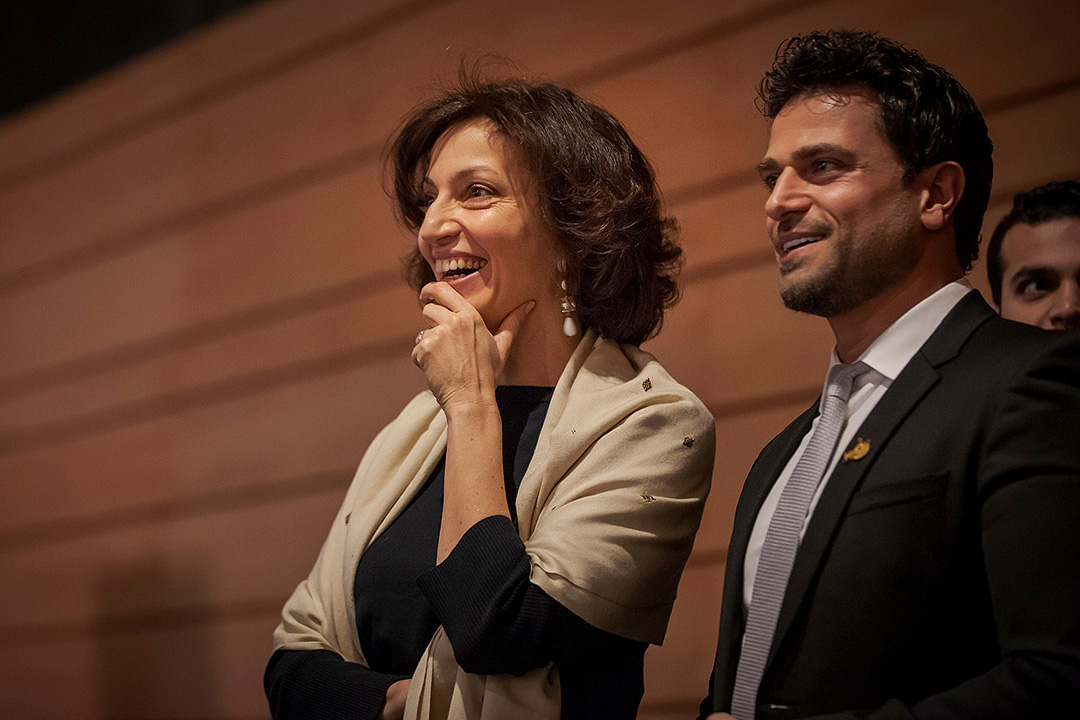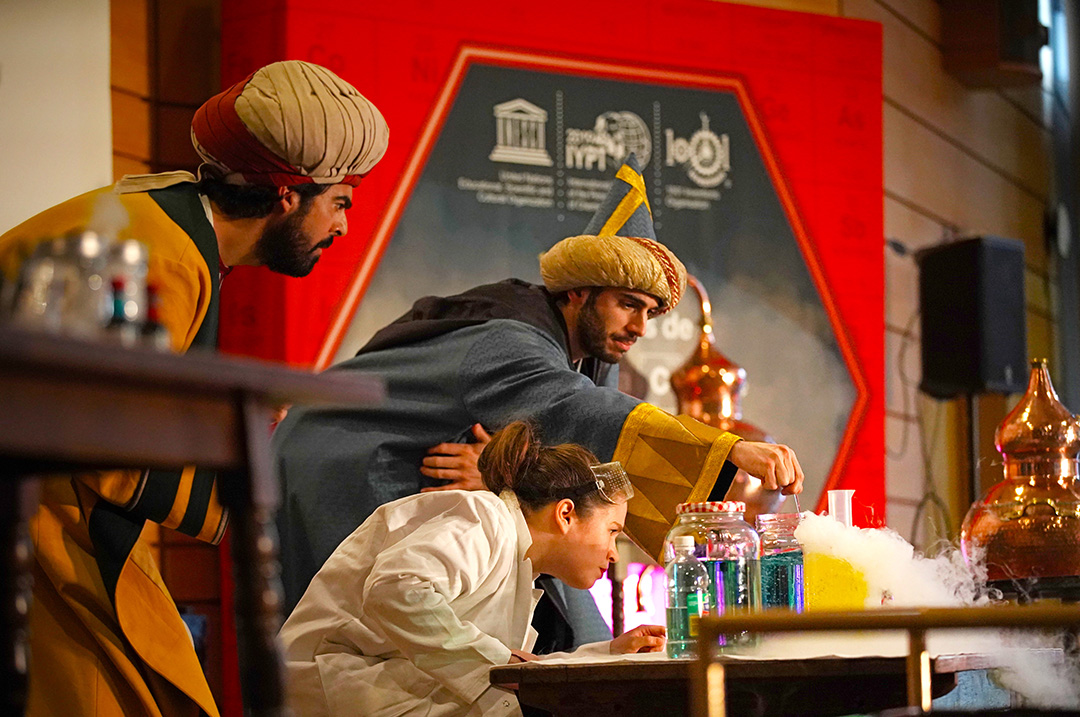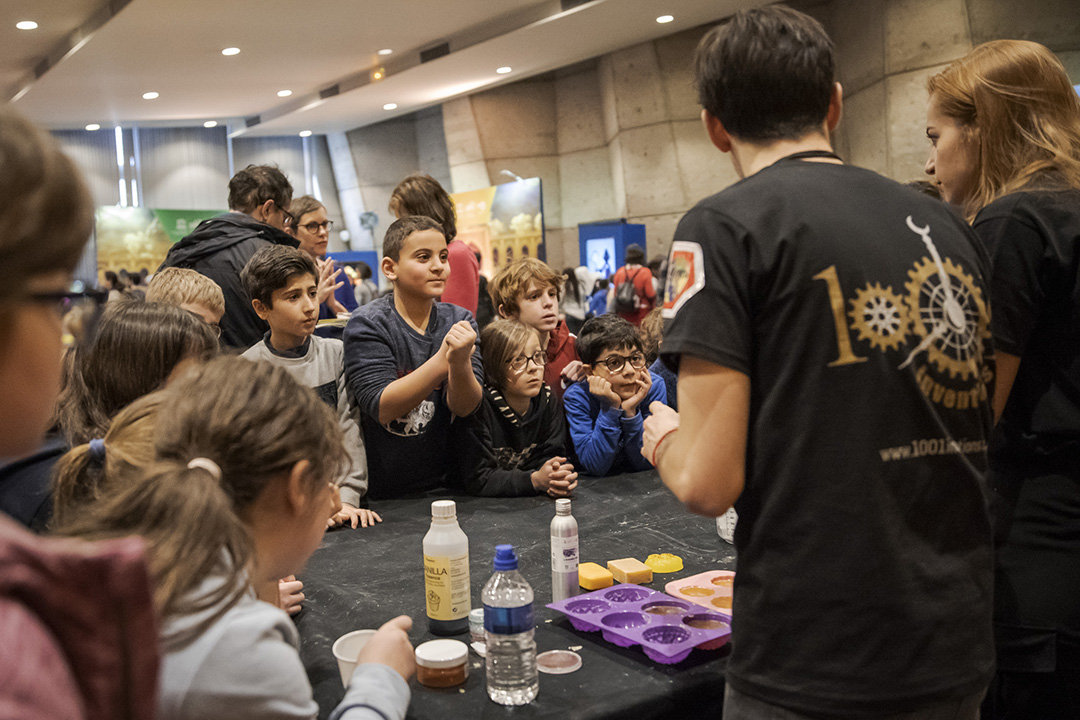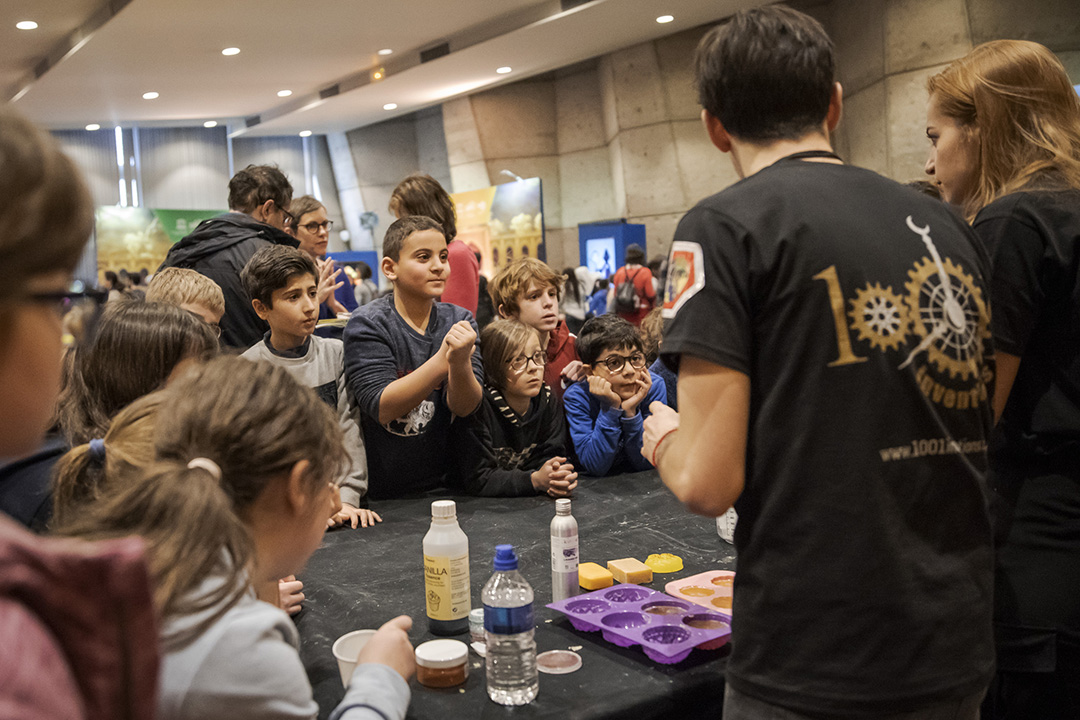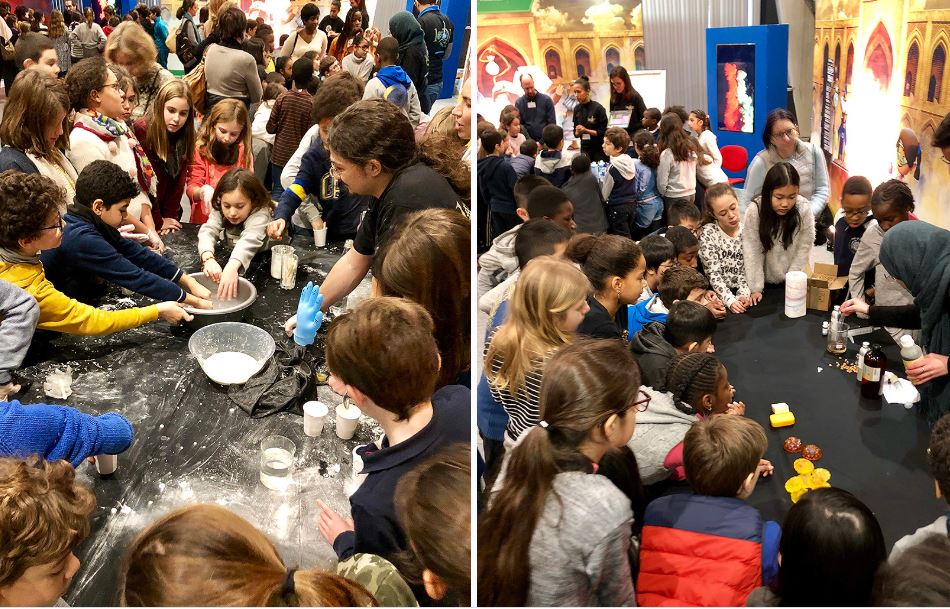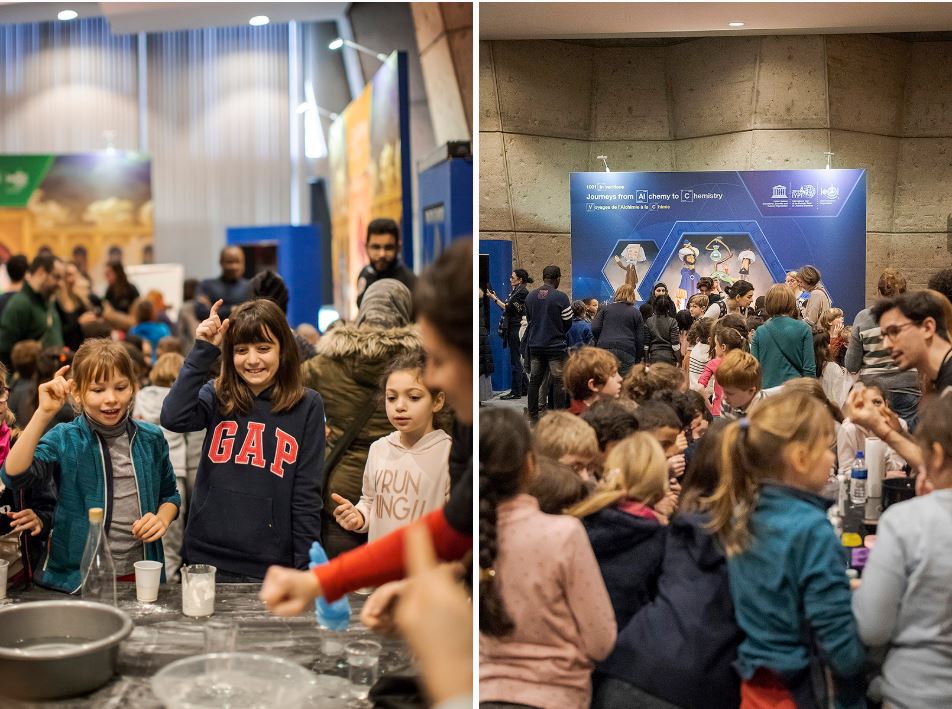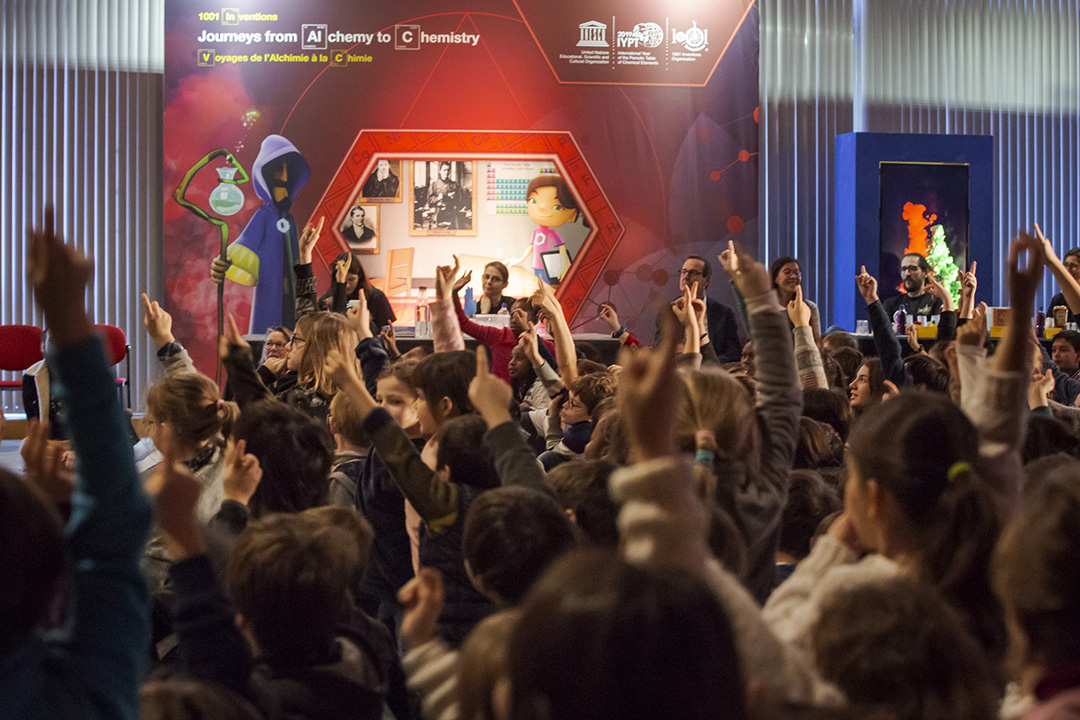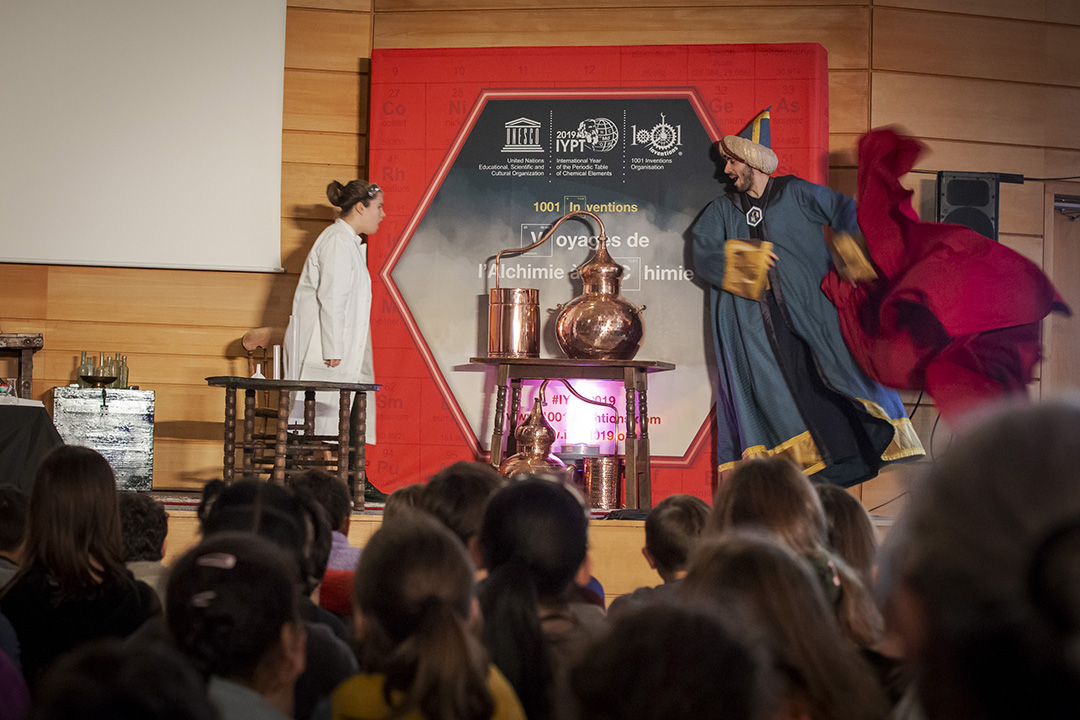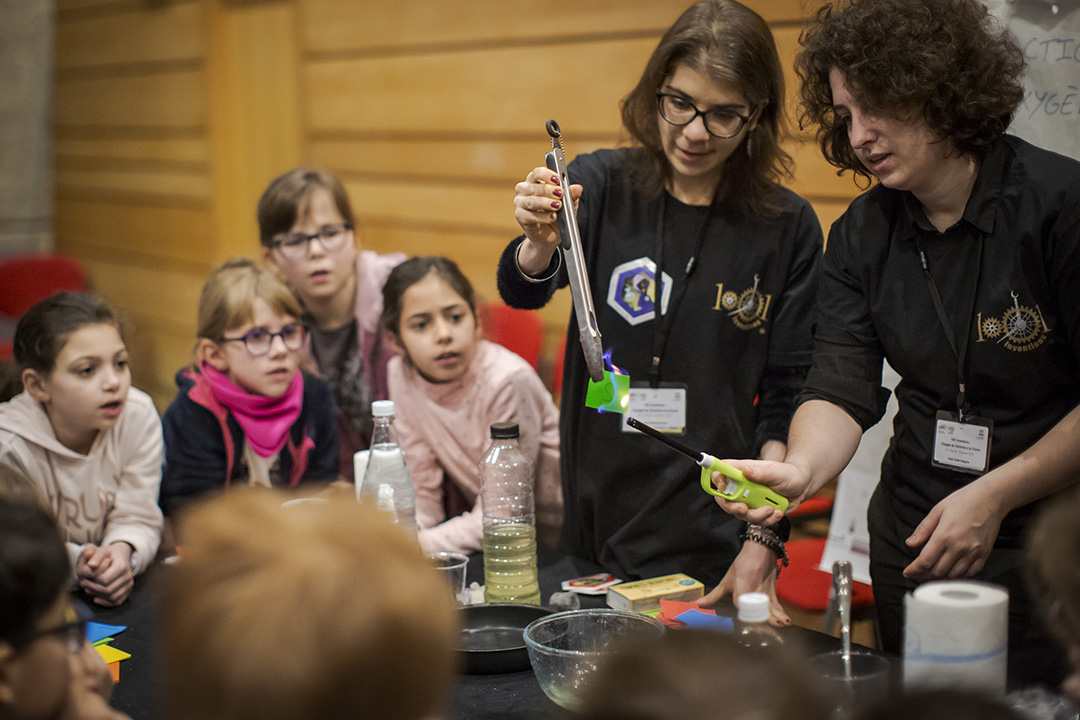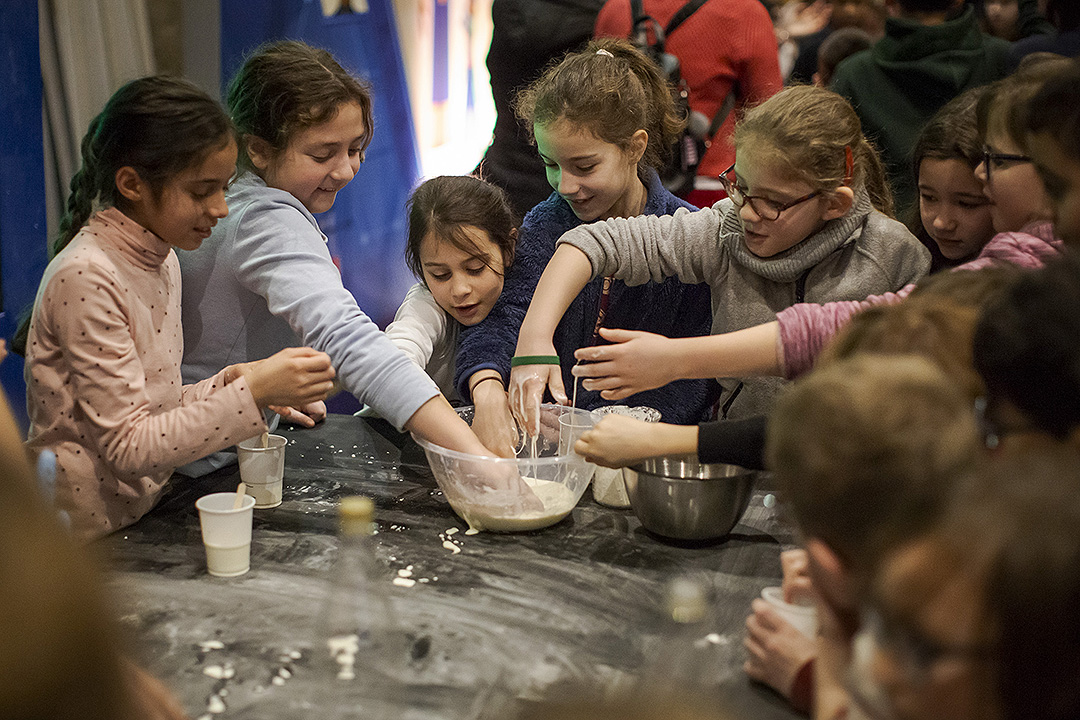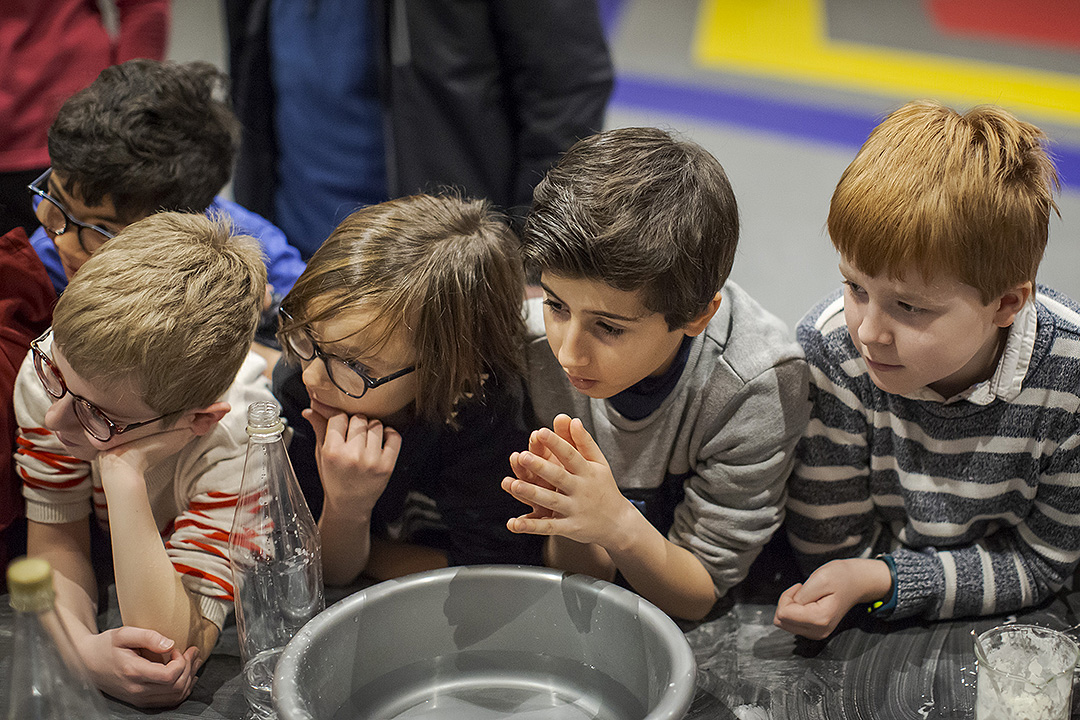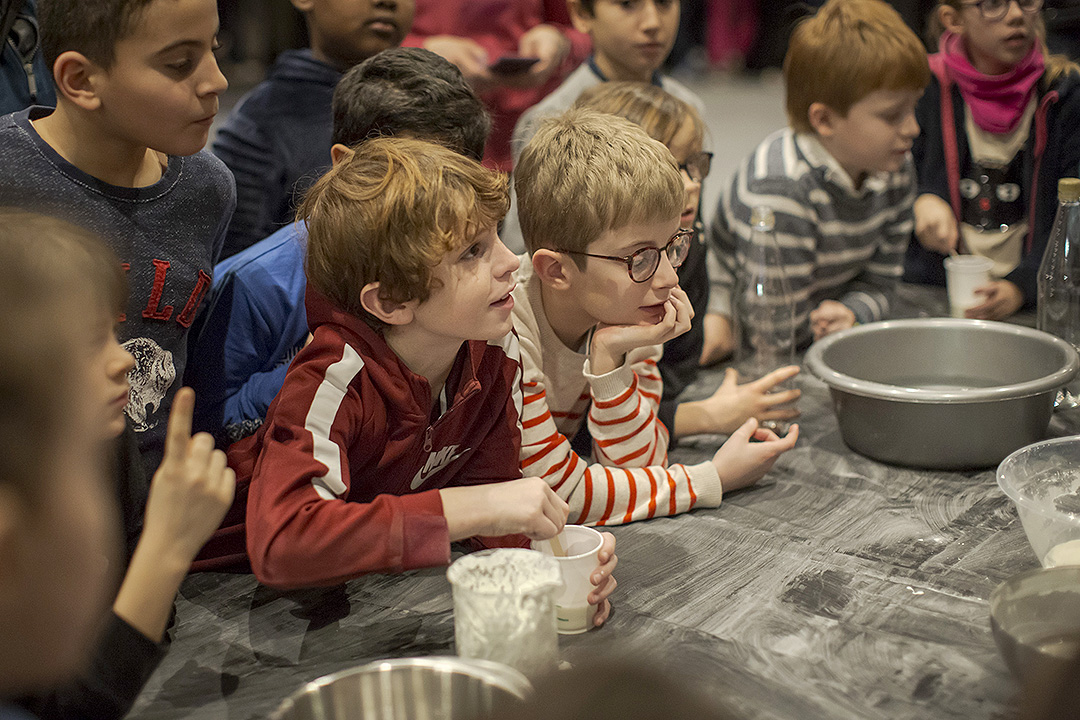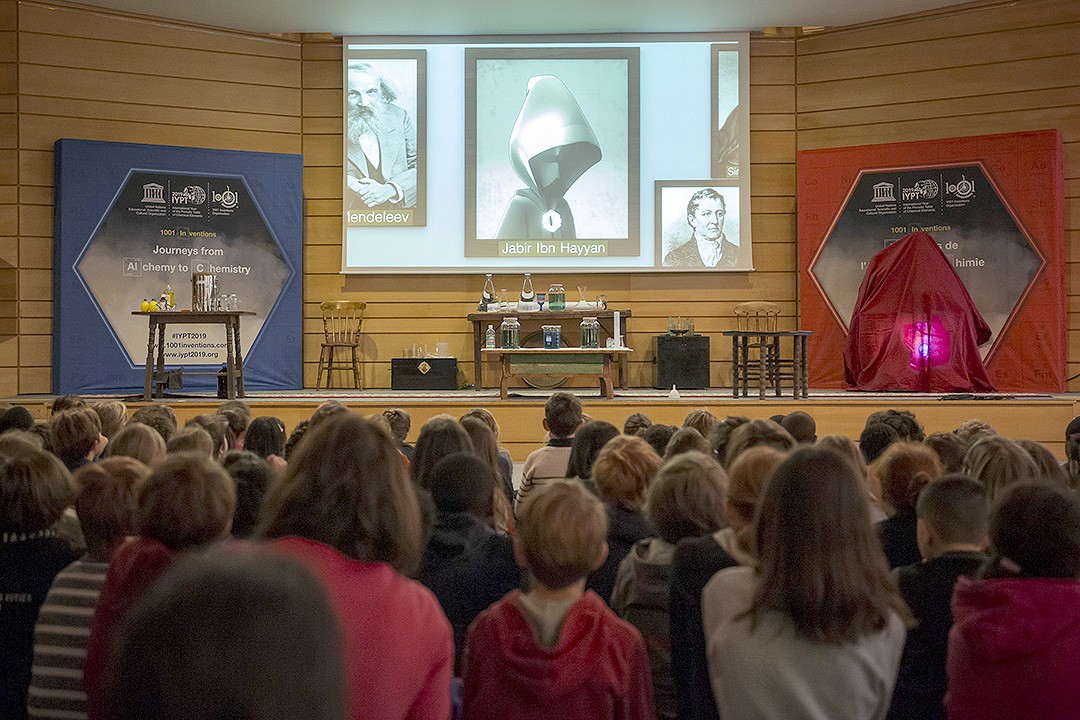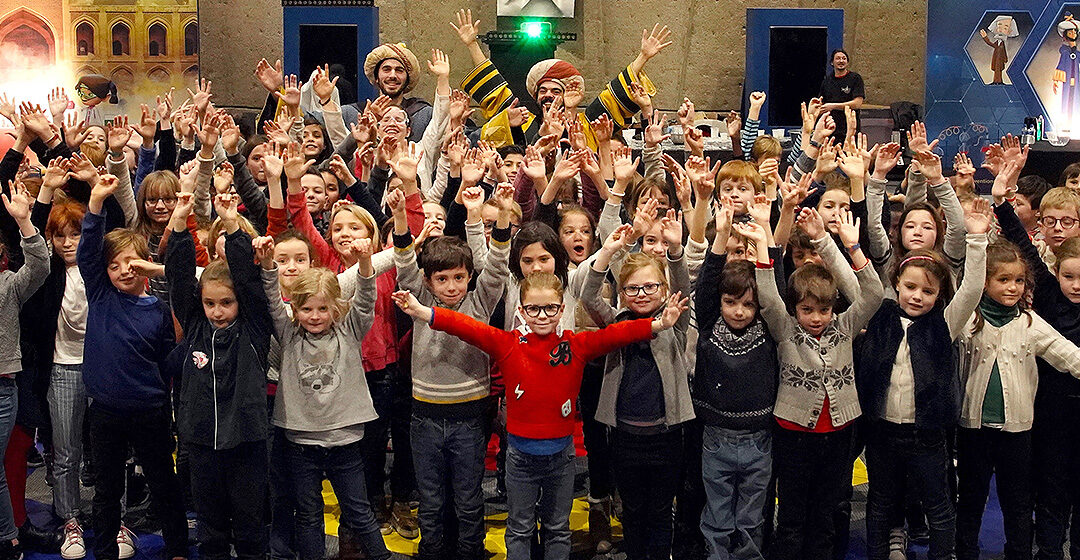Photo credits on this page: #salvathomas #lumentofilms
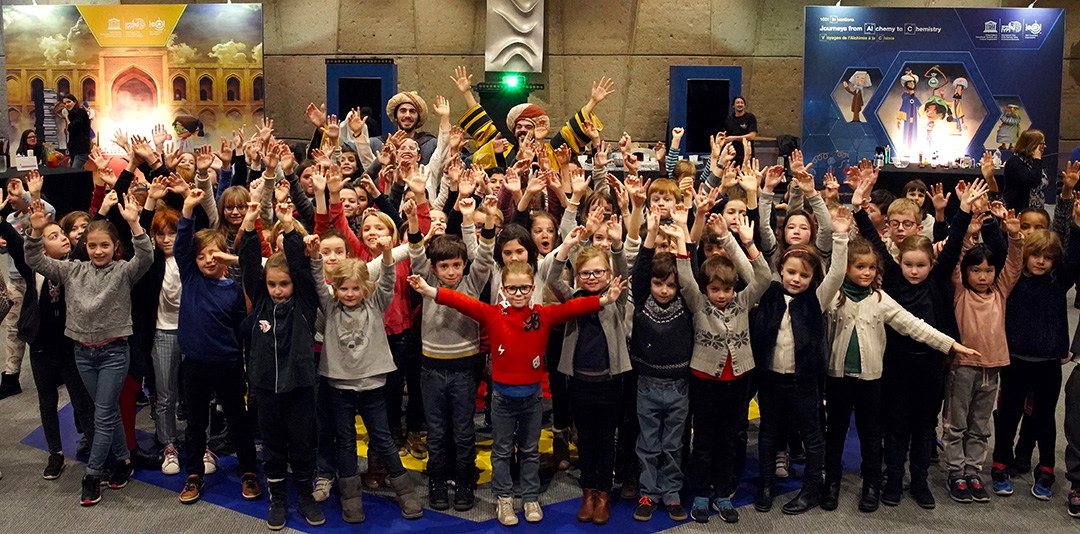
Thousands celebrate the launch of the International Year of the Periodic Table
Paris, 29 January 2019: In partnership with UNESCO – the United Nations Educational, Scientific and Cultural Organization – 1001 Inventions launched today a new educational initiative celebrating the International Year of the Periodic Table of Chemical Elements (IYPT2019) – a yearlong initiative to raise awareness of chemistry and its applications for sustainable development.
At the high profile IYPT2019 opening ceremony at UNESCO headquarters in Paris, the new global public engagement with science initiative titled “1001 Inventions: Journeys from Alchemy to Chemistry” was unveiled to a distinguished audience including Nobel laureates, international dignitaries, leading scientists and representatives from governments, industry, and academia.
UNESCO Director-General Audrey Azoulay today said:
 This is a fantastic occasion to talk to children and the public about the benefits of science, the journey of science and the contributions of the world to that journey. I want to thank 1001 Inventions for this partnership with UNESCO that helps explain how science has been a collaborative experience with one civilisation transmitting to another its progress and creating common good.”
This is a fantastic occasion to talk to children and the public about the benefits of science, the journey of science and the contributions of the world to that journey. I want to thank 1001 Inventions for this partnership with UNESCO that helps explain how science has been a collaborative experience with one civilisation transmitting to another its progress and creating common good.”
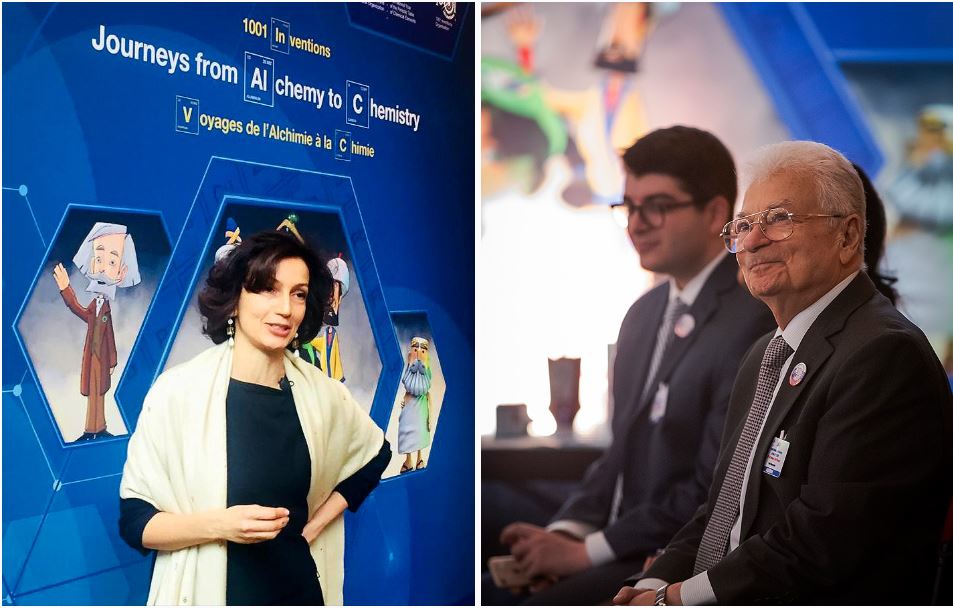
UNESCO Director-General Audrey Azoulay and Prof. Youri Oganessian, after whom the chemical element 118 – Oganesson – has been named (Photo credits on this page: #salvathomas #lumentofilms)
Through live events, short films, science theatre, hand-on workshops, and educational resources this first-of-its-kind global initiative aims to promote science education for all including youth, teachers and families to inspire inquisitiveness and curiosity.
Aiming to recognise humanity’s shared scientific heritage, “1001 Inventions: Journeys from Alchemy to Chemistry” presents the contributions to the foundations of modern chemistry by lesser-known pioneers from ancient cultures and civilisations including the remarkable work of the 8th century pioneering polymath Jabir ibn Hayyan, also known as Geber.
Ahmed Salim, 1001 Inventions Co-Founder and Managing Director said:
 1001 Inventions is delighted to continue to partner with UNESCO and support the United Nations proclaimed International Year of the Periodic Table of Chemical Elements. We are particularly excited to launch the initiative with educational events organised for children at UNESCO headquarters in Paris. Through presenting fascinating journeys of discovery in chemistry we aim to spark young people’s interest in science while promoting diversity and intercultural appreciation.”
1001 Inventions is delighted to continue to partner with UNESCO and support the United Nations proclaimed International Year of the Periodic Table of Chemical Elements. We are particularly excited to launch the initiative with educational events organised for children at UNESCO headquarters in Paris. Through presenting fascinating journeys of discovery in chemistry we aim to spark young people’s interest in science while promoting diversity and intercultural appreciation.”
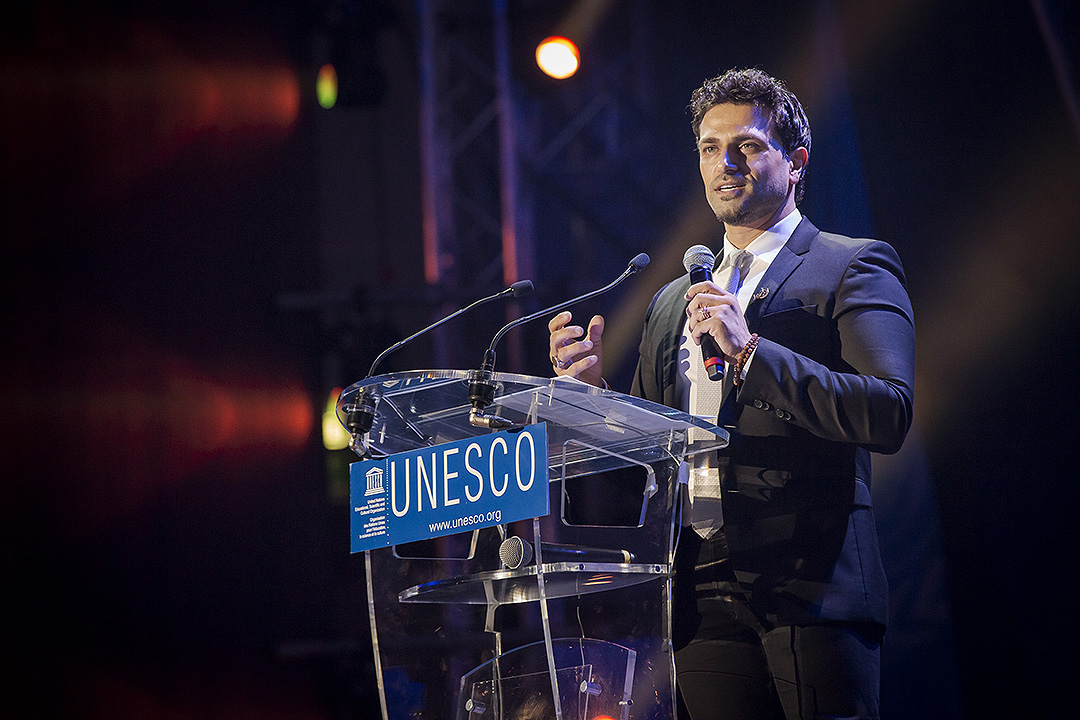
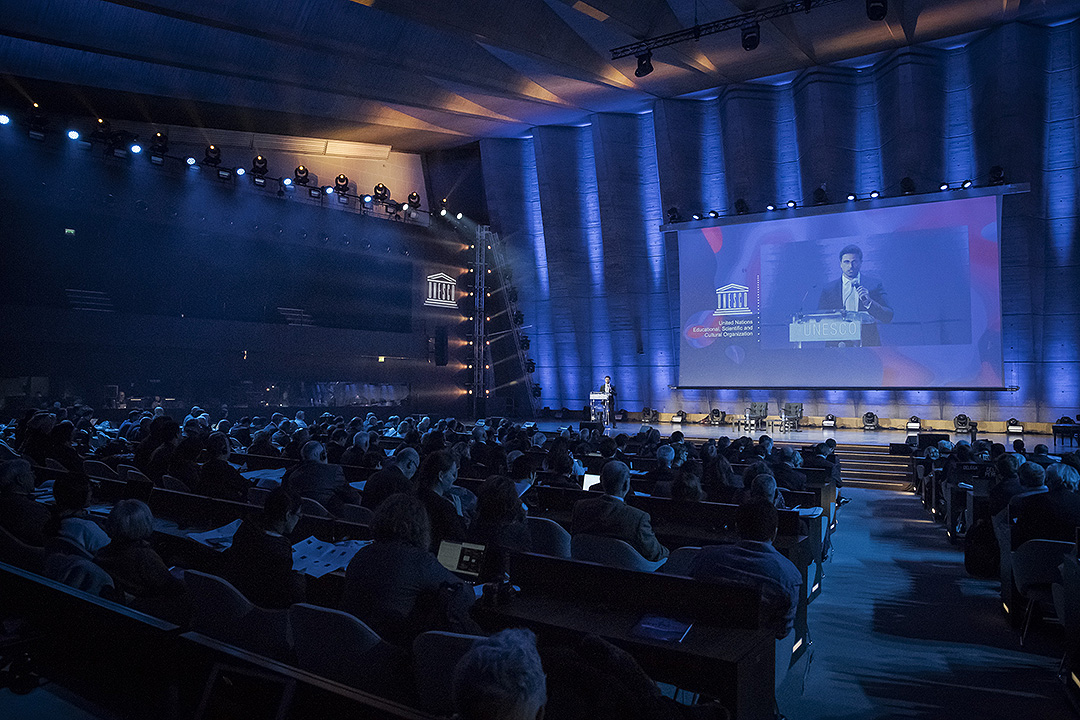
Photo credits on this page: #salvathomas #lumentofilms
Thousands of students are joining the events organised for primary schools at UNESCO headquarters in Paris. Through a short animated lecture by Professor Jim Al-Khalili, renowned scientist, author and broadcaster, immersive on-stage experiments weaved in a theatrical performance and exciting hands-on workshops children are creatively introduced to the Periodic Table and the fascinating journey from alchemy to chemistry, across ages, by remarkable pioneers from different backgrounds and cultures.
From Paris, the initiative then rolls out on a global tour in partnership with museums, science centres, festivals, schools, universities and libraries aiming to engage millions of young people around the world to inspire a future generation of chemists and scientists while promoting diversity and cross-cultural understanding.
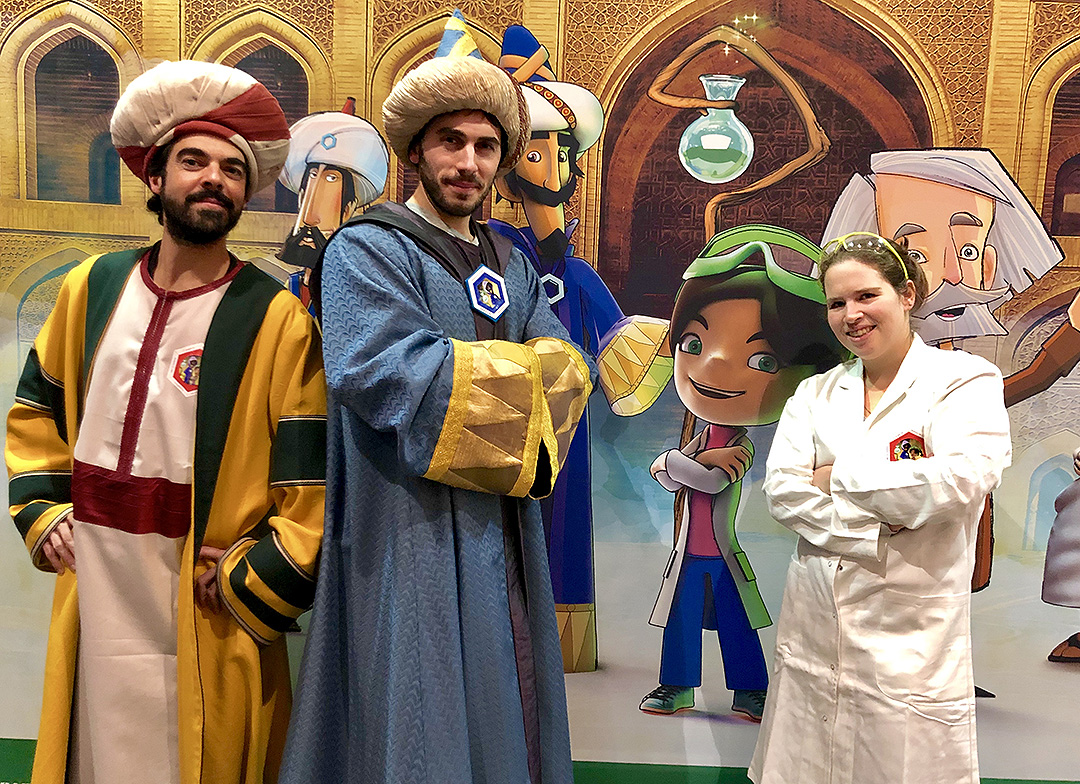
Photo credits on this page: #salvathomas #lumentofilms
About Jabir ibn Hayyan (722 to ca 815)
Jabir ibn Hayyan was known in the West as Geber. The son of a druggist, he spent most of his life in Kufa, Iraq. He devised and perfected sublimation, liquefaction, crystallization, distillation, purification, amalgamation, oxidation, evaporation, and filtration. He also wrote about how chemicals combined, without loss of character, to form a union of elements together that were too small for the naked eye to see.
Jabir vastly increased the possibilities of chemical experiments by discovering sulfuric, nitric, and nitromuriatic acids, all now vitally important in the chemical industry.
He also built a precise scale, which weighed items 6,480 times smaller than the ratl (ratl=1 kilogram or 2.20 pounds), and noticed in certain conditions of oxidation, the weight of a metal was lessened.
Some of Jabir ibn Hayyan’s writings include the Great Book of Chemical Properties, The Weights and Measures, The Chemical Combination, and The Dyes. Among his greatest contributions to the theory of chemistry were his views on the constitution of metals, and these survived with slight alterations and additions until the beginning of modern chemistry in the 18th century.
Source: “1001 Inventions: The Enduring Legacy of Muslim Civilization” (Reference 4th Edition, Published by FSTC Limited UK, 2017), [Chapter 3, Section 8: Chemistry].
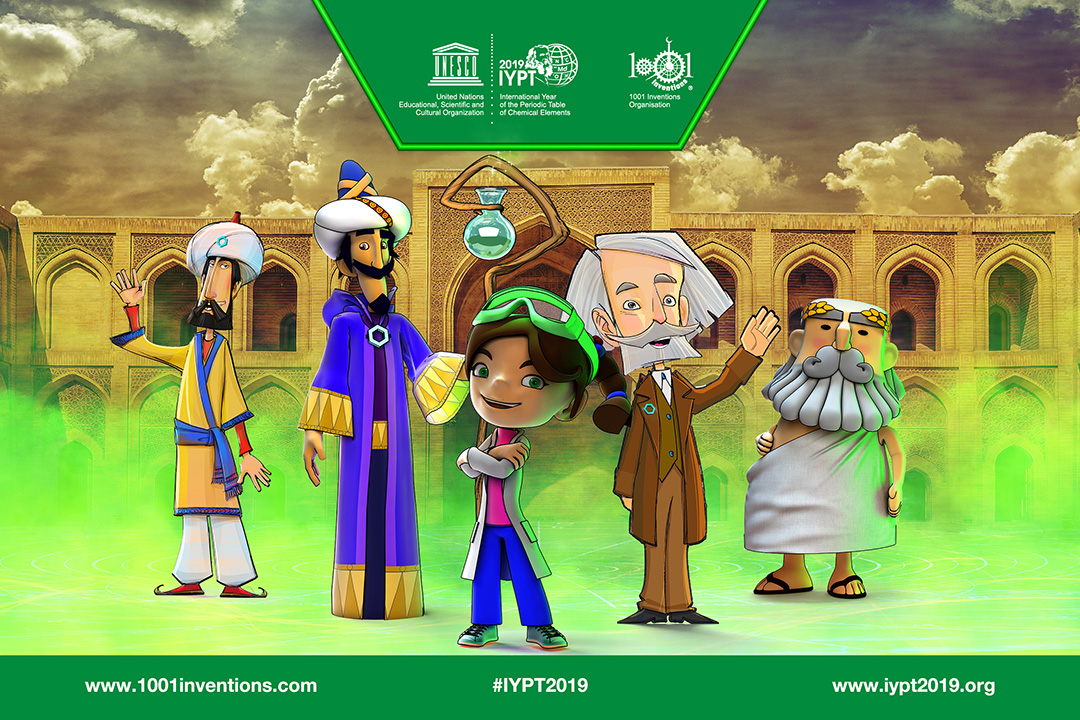
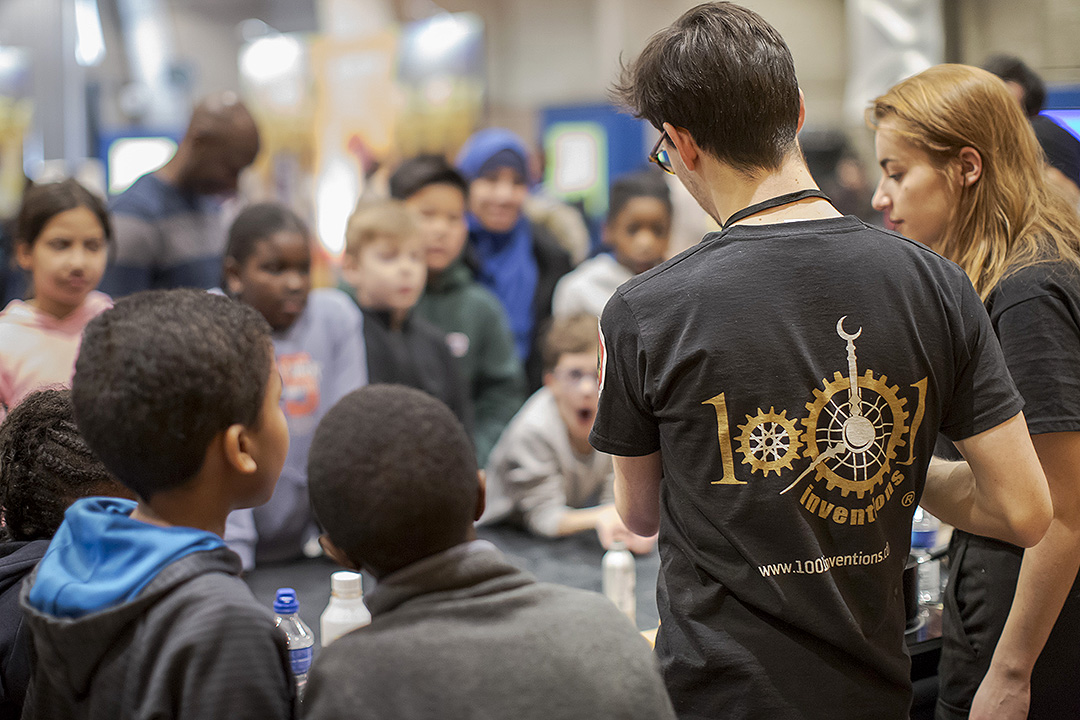
Photo credits on this page: #salvathomas #lumentofilms
About the 2019 International Year of Periodic Table of the Chemical Elements (IYPT2019)
On 20 December 2017, the United Nations General Assembly during its 74th Plenary Meeting proclaimed 2019 as the International Year of the Periodic Table of Chemical Elements. Based on the 202 EX/Decision 43, the IYPT2019 was adopted by the UNESCO General Conference at its 39th Session (39 C/decision 60) to highlight the contributions of chemistry and other basic sciences to the implementation of the 2030 Agenda for Sustainable Development.
The IYPT2019 is an IUPAC initiative and administered by a Management Committee consisting of representatives of the initiating organizations, UNESCO and a number of other supporting international organizations.
The founding partners of IYPT2019 are: the International Union of Pure and Applied Chemistry, the European Association for Chemical and Molecular Science (EuCheMS), the International Science Council (ISC), the International Astronomical Union (IAU), the International Union of Pure and Applied Physics (IUPAP) and the International Union of History and Philosophy of Science and Technology (IUHPST).
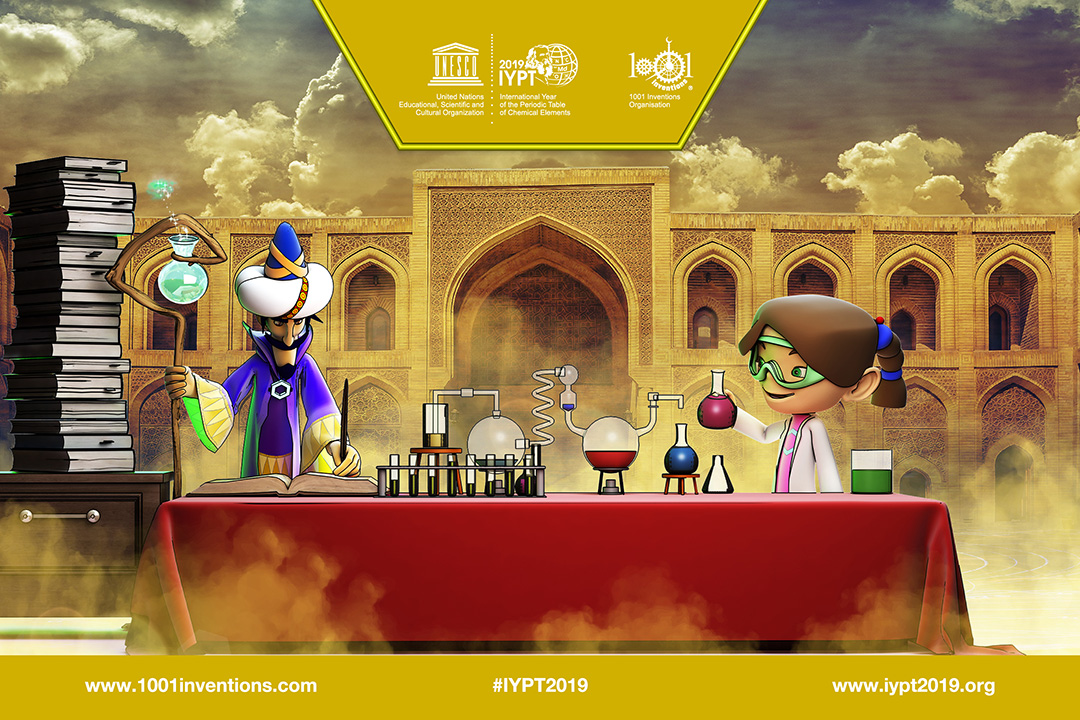
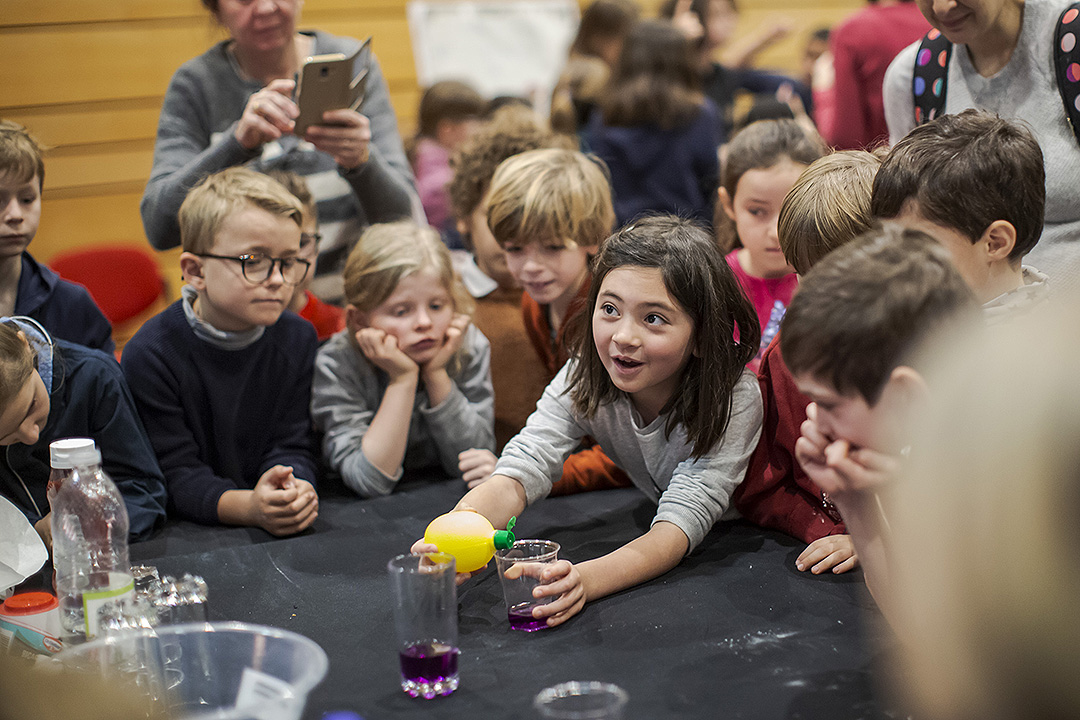
Photo credits on this page: #salvathomas #lumentofilms
About 1001 Inventions
1001 Inventions is an award-winning, British based organization that creates international educational campaigns and engaging transmedia productions aiming to raise awareness of the contributions to science, technology and culture from the Golden Age of Muslim Civilization.
1001 Inventions has engaged with over 400 million people across the globe working with a network of international partners, including UNESCO, National Geographic and leading academics to produce interactive exhibits, short films, live shows, books and classroom learning materials that are being used by hundreds of thousands of educators around the world.
More Images (Photo credits on this page: #salvathomas #lumentofilms)
